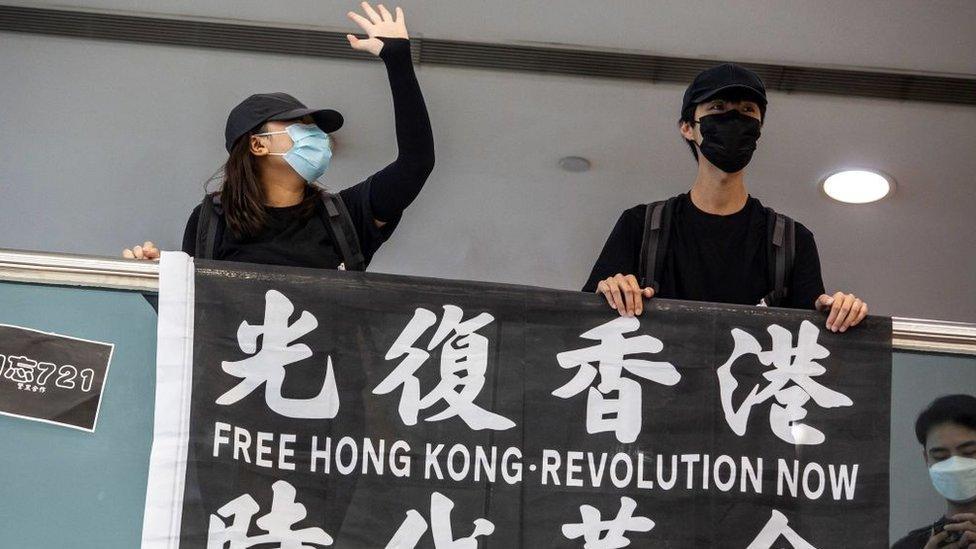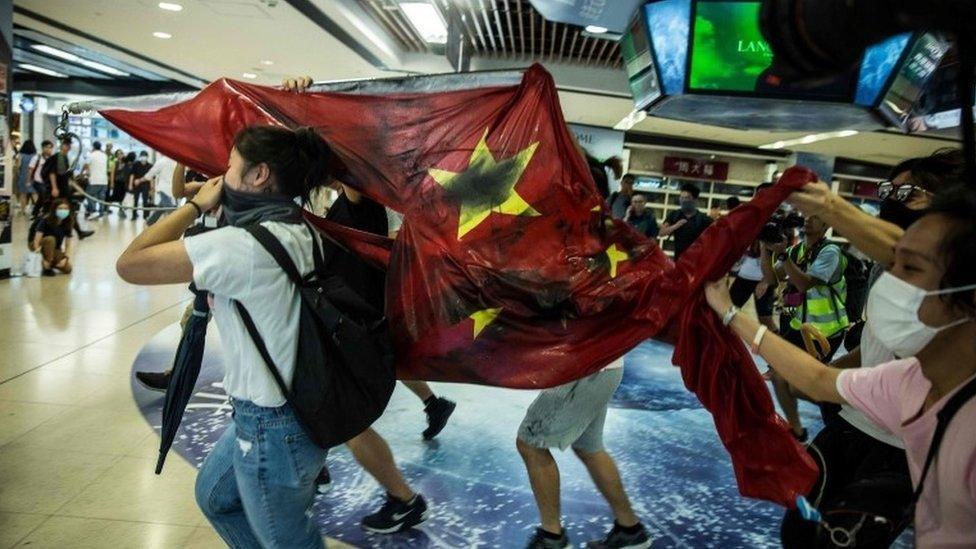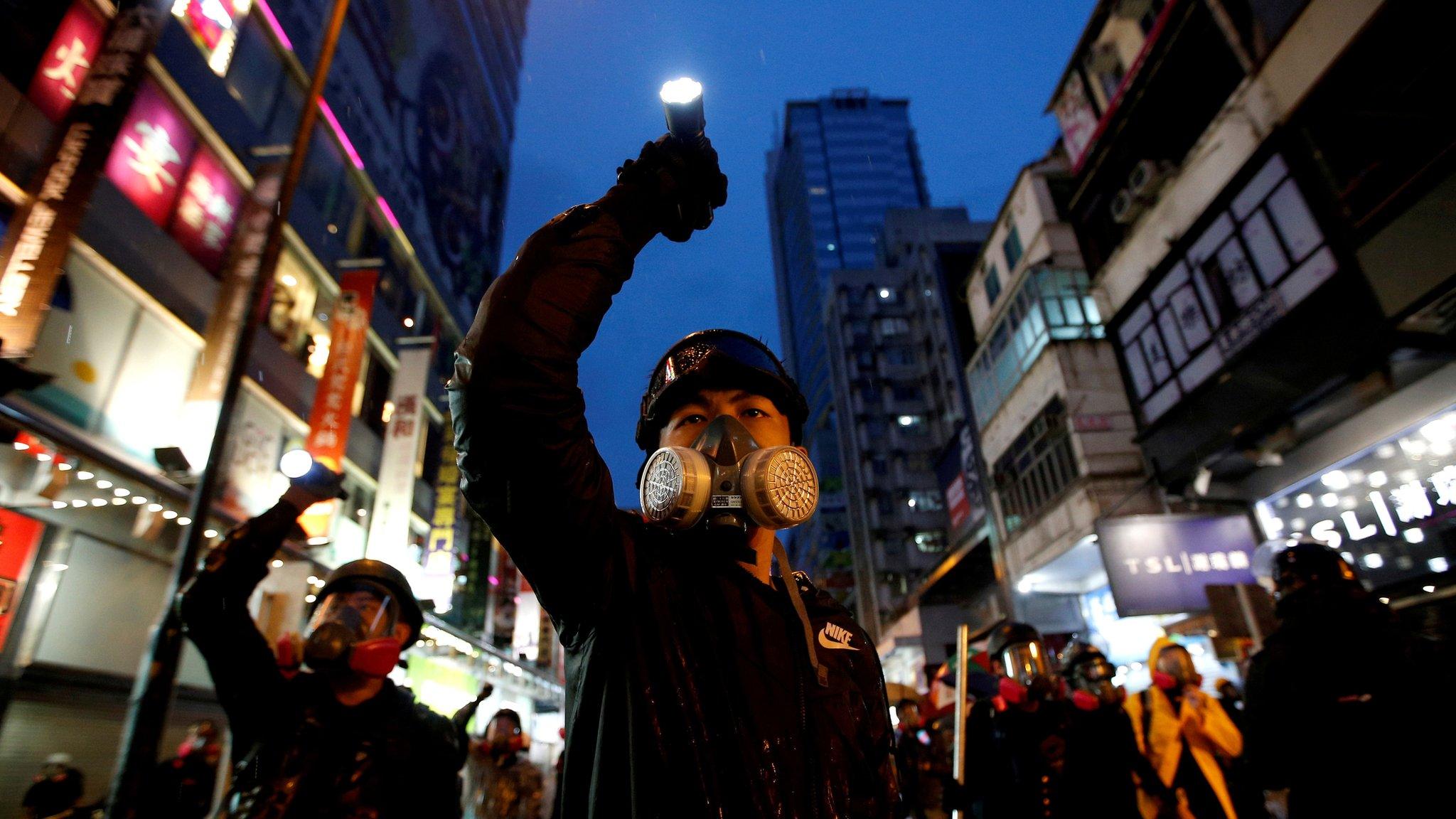Hong Kong security law: UN experts voice deep concerns
- Published

UN human rights experts have told China a new security law for Hong Kong poses a serious risk to the city's freedoms.
The legislation has been widely criticised since it was imposed by Beijing in June after months of huge pro-democracy protests in Hong Kong last year.
In the letter made public on Friday, experts said the law breached international legal obligations.
They also voiced concerns it could be used to prosecute political activists.
The law, which criminalises secession, subversion, and collusion with foreign forces, has silenced many protesters since it came into effect.
Last month Hong Kong police arrested 10 people in their largest operation yet under the legislation.
It centred on a dramatic raid of the city's biggest pro-democracy newspaper, Apple Daily, and the arrest of its founder Jimmy Lai.
The move shocked many in Hong Kong and triggered widespread global condemnation about eroding freedoms in the former British colony.
While there have been multiple arrests and ongoing probes under the new security law, so far only one person has been charged.
What did the letter say?
On Friday the 14-page letter was posted on the UN human rights office website, external, 48 hours after it was sent to the Chinese government.
It was sent by Fionnuala Ni Aolain, a UN special rapporteur on protecting human rights while countering terrorism, and six other UN experts.
They said the new law's measures do not conform to China's legal obligations under international law.
The experts also raised serious concerns about its impact on the freedoms that were guaranteed to Hong Kong when it was handed back to China from British control in 1997.
"We are particularly troubled that this legislation may impinge impermissibly on the rights to freedom of opinion, expression and of peaceful assembly," they wrote.
They added that it ran the "grave risk" of targeting the legitimate activities of political opponents, critics, students, and lawyers among others.

In 2019, there were months of anti-Beijing protests
Pro-democracy activists in the city have been raising similar concerns.
On Tuesday prominent activist Agnes Chow, who was among the group detained under the law last month, said dissent in the city was being silenced.
"I hope the world, not only the whole of Hong Kong... could know that the national security law is actually not a legal thing, but a political tool for the regime, for the government to suppress political dissidents," AFP reported Ms Chow as saying.
Beijing has said the legislation is needed to tackle unrest and instability.
It rejects criticism as interference in its affairs.
- Published21 May 2020
